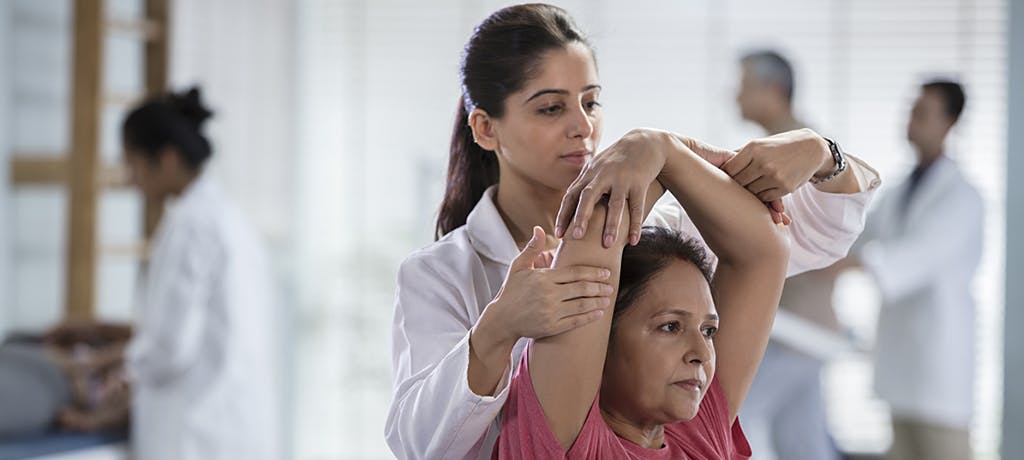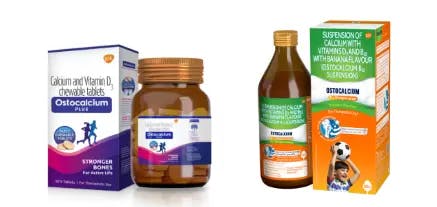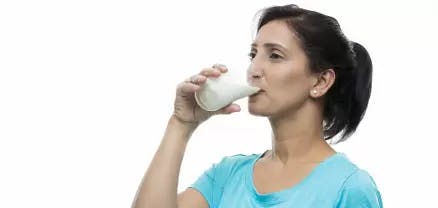Bone health can be affected by certain risk factors that are out of your control, such as genetic and environmental factors. However, several factors are very much in your control1. Let us understand these factors to truly understand ways to ensure healthy bones.
Some interesting facts that are out of your control:
here are some interesting bone facts you need to know:
Fact 1: Women are at a higher risk of osteoporosis than men
Women have lesser bone density compared to men, and menopause causes a rapid decrease of bone strength in them1. This blog highlights why women need to take care of their bones.
Fact 2: Advancing age means fragile bones
No one has control over aging. Aging affects your bones negatively too. The older you get, the more fragile your bones become.
Fact 3: Low body weight might mean a higher risk of osteoporosis.1, 4
Anyone who has low body weight might have low bone mass and has a higher risk of fractures.
Fact 4: Fractures run in the family
Fracture risk can be determined by family history too. If parents have a history of fractures, then the children might have reduced bone density and a higher risk of fractures compared to those with no family history.
Some interesting facts that you can control:
Here are some interesting bone facts you need to know:
Fact 1: Losing more weight and in a short time might cause bone loss
Weight loss and weight fluctuations throughout life seems to have an impact on the bone too. Among pre-menopausal women; quick and drastic weight loss within 3-4 months might cause bone loss. Instead, a moderate weight loss over 6 months shows little to no bone loss in premenopausal women.
Fact 2: How much Calcium and Vitamin D3 are you getting?
Predominant vegetarian diets, low milk consumption and lack of sun exposure can lead to low Calcium and Vitamin D3. Prolonged low intake of both these bone nutrients might make you prone to bone loss.
Fact 3: Physical activity is like magic for bone strength
Girls, boys and young adults who exercise might have greater bone density than those who don’t exercise. Regular exercise might prevent bone loss among women and men aged 30 years or older2 .
Fact 4: Certain medications can weaken the bones.
Learn about them Long-term use of steroid-related medications or medications given for fits might cause loss of bone density and increase the risk of fractures.
Fact 5: Smoking is bad for bones too
Smoking is not just bad for the heart and lungs, it is bad for the bones as well1 Smoking can impact the peak bone mass.
Fact 6: Alcohol is your bones’ enemy
Excessive consumption of alcohol can weaken bones and increase the risk of fractures.
Osteoporotic fractures is a real threat as we age. Although science has advanced, reversal of bone loss in people already having osteoporosis is problematic and does not entirely relieve the patient of disability. Thus it is wise to prevent the bones from becoming fragile in the first place and reducing the risk of fractures. Peak bone density thus comes into picture5 It is common knowledge that a high peak bone density can reduce the risk of osteoporosis later in life2. Hence it makes sense to pay attention to the controllable factors that influence bone health2. By modifying the diet, lifestyle and exercise parameters, we can prevent the gradual age-related bone loss1.
References
1. Some interesting facts that are out of your control Some interesting facts that you can control 1. National institute of health. Osteoporosis overview. Available from: https:/www.bones.nih.gov/health-info/bone/osteoporosis/overview. Accessed on: 17 July 2020.
2. National institute of health. Osteoporosis: Peak Bone Mass in Women. Available from: https:/www.bones.nih.gov/health-info/bone/osteoporosis/bone-mass. Accessed on: 17 July 2020.
3. Khadilkar AV, Mandlik RM. Epidemiology and treatment of osteoporosis in women: an Indian perspective. Int J Womens Health. 2015;7:841-850.
4. Shapses SA, Riedt CS. Bone, body weight, and weight reduction: what are the concerns?. J Nutr. 2006;136(6):1453-1456. Eisman JA, Kelly PJ, Morrison NA, et al. Peak bone mass and osteoporosis prevention. Osteoporos Int. 1993;3 Suppl 1:56-60




